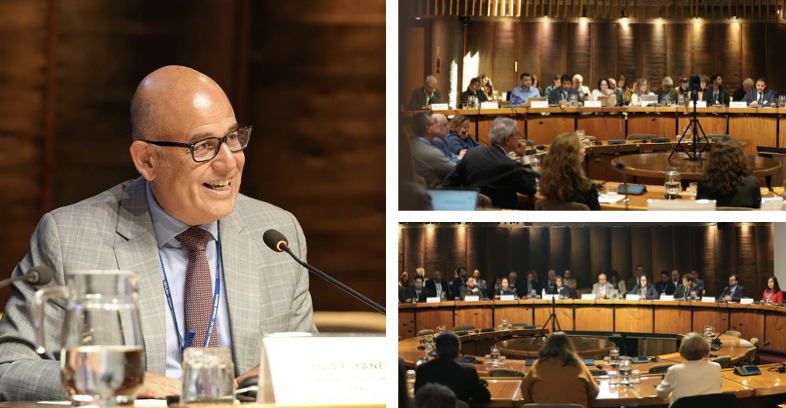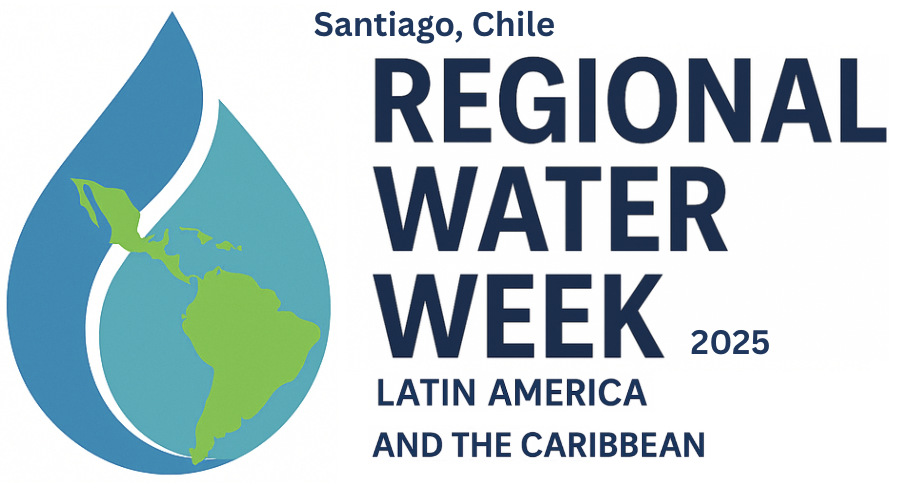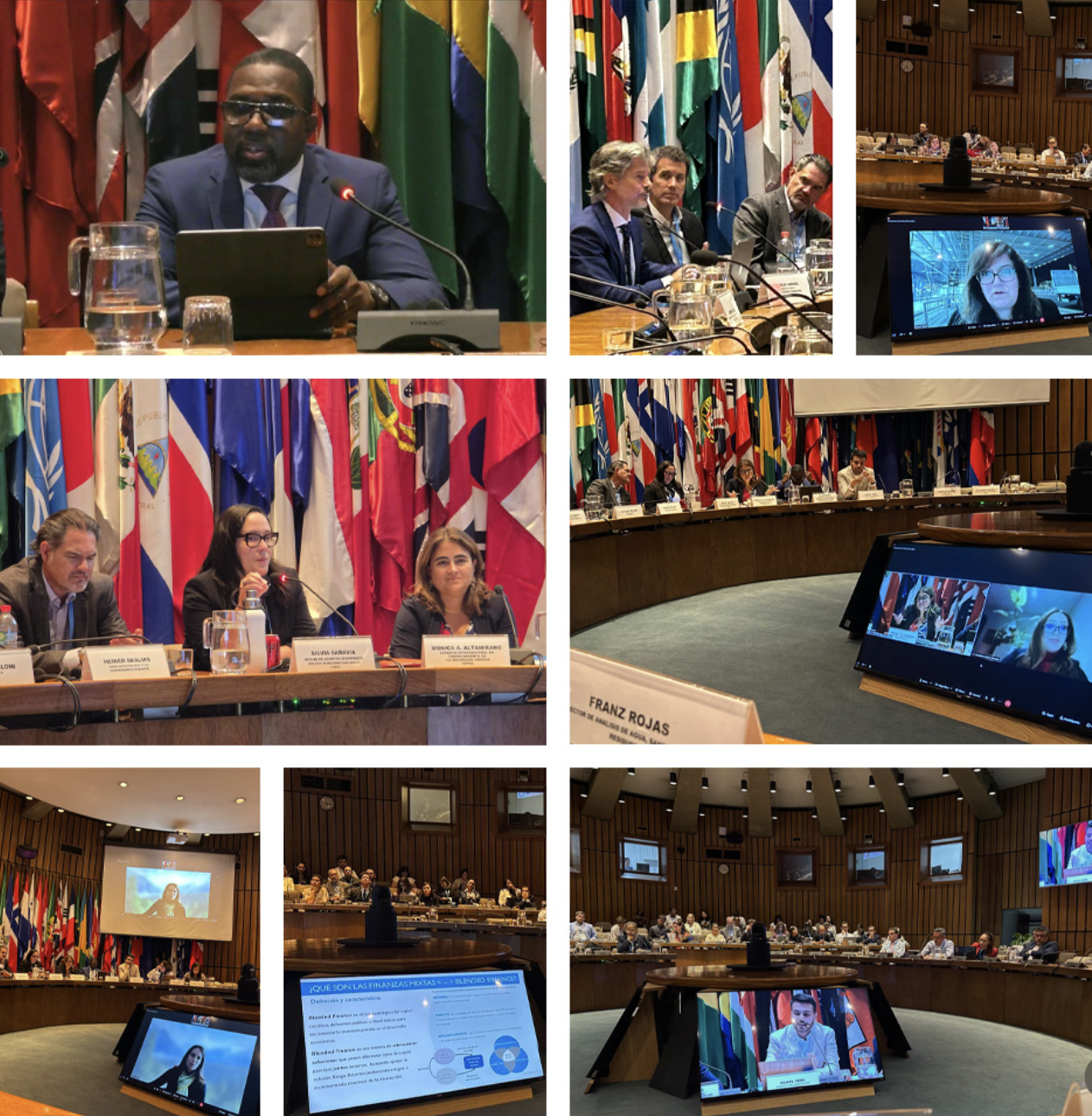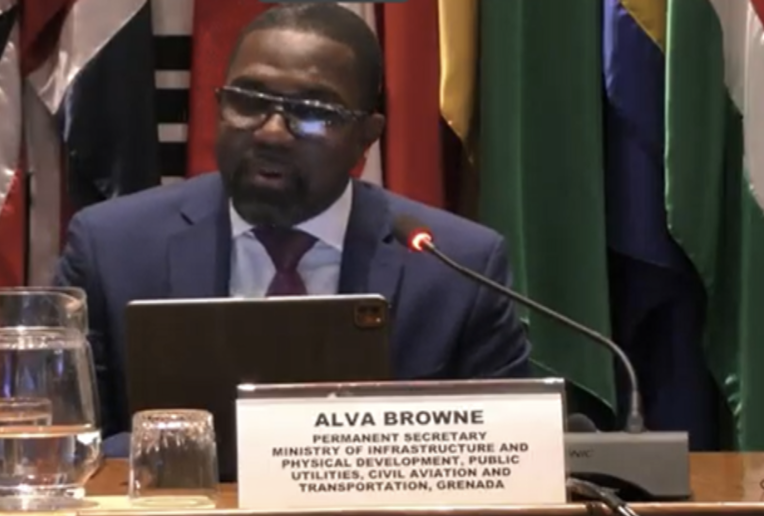5th Regional Water Dialogues | Opening remarks by the Secretary of the Commission, Mr. Luis Fidel Yáñez, during the session on Cooperation and Investment for Water Security in Shared Basins
Work area(s)
Topic(s)
Within the framework of the V Regional Water Dialogues for Latin America and the Caribbean , the International Seminar on Transboundary Waters was held: “Strengthening the governance of transboundary water resources in Latin America and the Caribbean, with an opening message by the Secretary of the ECLAC Commission, Mr. Luis Fidel Yánez . He called for a move from declarations to institutionality , from diagnoses to enabling investments , and from sectoral coordination to territorial coherence to accelerate measurable results in shared basins and aquifers. “Cooperation ceases to be a declaration and becomes measurable results when there are precise mandates, shared data and plans with identified financing.”

Opening message:
Dear Gloria de la Fuente, Undersecretary of Foreign Affairs of Chile, distinguished delegates, Dear Martín Abeles, Director of ECLAC's Natural Resources Division, Dear Silvia Saravia Matus, Economic Affairs Officer, responsible for water affairs, who has been the driving force behind these dialogues and the driving force behind their consolidation in the region, colleagues from ECLAC and the United Nations system, friends, Good afternoon.
Since 2021, ECLAC has been organizing the Regional Water Dialogues annually . We envision this space as an opportunity for meeting and dialogue on public policies at the ministerial level to comprehensively, inclusively, and transparently assess progress related to SDG 6 in the region and promote good practices and lessons learned to accelerate its achievement.
Today we begin the fifth edition of the Regional Dialogues , within the framework of this Water Week , which since last Monday has brought together in our House multiple actors from government, international organizations, the private sector, civil society, indigenous communities, academia, the United Nations system, among others.
Allow me to extend a warm welcome to this afternoon session dedicated to cooperation in transboundary waters. First, I would like to thank Undersecretary Gloria de la Fuente for her remarks and for Chile's leadership in this matter. I also extend special recognition to the National Directorate of State Borders and Limits (DIFROL) of the Ministry of Foreign Affairs, for the work it has done, together with the water team of ECLAC's Natural Resources Division, which has made it possible to articulate this agenda with a vision for the State, technical rigor, and a commitment to cooperation.
Our region is rich in water. The Amazon Basin alone accounts for 20% of the world's freshwater supply. Most of our large rivers—and many of our aquifers—share basins and horizons beyond a single jurisdiction: the Amazon Basin, the La Plata Basin, the Trifinio region, among others. In South America alone, there are 38 transboundary river basins, 14 transboundary aquifers, and 5 transboundary lake basins.
In Central America and the Caribbean, there are 33 transboundary rivers and lake basins, and at least 8 transboundary aquifers. This reality is at stake for the water security, health, and development of millions of people. Transboundary water governance, therefore, is an enabling condition for peace, prosperity, and climate resilience. This governance presents both challenges and opportunities:
- Challenges , because the lack of coordination can translate into tensions, environmental degradation and inequalities in access.
- Opportunities , because cooperative arrangements—solid, transparent, inclusive, and with clear legal foundations—build trust, prevent conflict, improve resource efficiency, and generate shared value through investments that transcend political cycles.
Today, we are called upon to undertake a specific task: to honestly examine our progress and gaps in light of SDG 6, which measures the "Proportion of transboundary basin area subject to operational arrangements for water cooperation," that is, the degree of implementation of integrated water resources management at the transboundary level.
But it's not just about meeting an indicator; it's about strengthening the institutions, agreements, and mechanisms that allow us to transform water into well-being, resilience, and opportunities for the communities that inhabit our watersheds.
In this regard, I would like to highlight three political priorities to guide this collective effort:
-
Moving from will to institutionalization : Cooperation requires clear rules, effective joint bodies, and governance arrangements that can withstand changing circumstances. Regional experience shows that when there are precise mandates, shared data, and binational or multilateral plans with identified funding, cooperation ceases to be a declaration and becomes measurable results.
- Moving from diagnostics to enabling investments : Climate change introduces hydrological uncertainty that requires transboundary adaptation plans, gray and green infrastructure, and jointly managed ecosystem services. Directing investments toward interoperable hydrometeorological monitoring, early warning, headwater and aquifer restoration, and nature-based solutions is, today, a strategic decision for both security and development.
- Moving from sectoral coordination to territorial coherence . Watersheds do not distinguish between agriculture, energy, cities, or conservation. Coordination with ministries of environment, public works, energy, agriculture, and foreign ministries is essential to align regulations, permits, incentives, and social and environmental safeguards, with the effective participation of communities and Indigenous peoples.
I would like to highlight the joint work of ECLAC's Natural Resources Division and the National Directorate of Borders and Limits, which has made it possible to align diplomatic, legal, and technical perspectives with a common goal: greater and better cooperation for the benefit of our shared populations and ecosystems. This is complemented by the valuable support of the United Nations, such as the Economic Commission for Europe and the Secretariat of the Water Convention, as well as the regional partners present here.
In that spirit, I invite you on this day to: share national experiences with transparency; identify replicable lessons and good practices; and propose concrete steps to strengthen regulatory frameworks, institutional mechanisms, and investment portfolios that provide tangible responses to the challenges of climate and sustainable water management in our shared basins.
Advancing cross-border and sectoral cooperation will help strengthen the links between humanitarian and development approaches. Integrating a gender perspective into water governance, as well as including the voices of youth and indigenous communities in public water policies and programs, will significantly reduce water-related conflicts in the region.
Let me take this opportunity to extend an invitation to participate in the next meeting of the Forum of the Countries of Latin America and the Caribbean on Sustainable Development , which will take place at ECLAC from 13 to 17 April 2026. This meeting will include an in-depth examination of SDG 6 , along with SDG 7 (affordable energy); SDG 9 (resilient infrastructure); SDG 11 (inclusive cities); and SDG 17 (partnerships).
According to ECLAC figures presented at this year's Forum, 20% of SDG6 indicators are moving in the right direction toward achieving the goal by 2030, but, unfortunately, more than 50% of these indicators are showing setbacks or stagnation.
The Regional Water Action Agenda , jointly developed and approved at the 2023 dialogues , is a tool to advance the region's efforts toward a sustainable and inclusive water transition and accelerate progress toward achieving SDG 6.
Finally, I would like to especially highlight the ability of these regional dialogues to unite diverse actors around shared objectives . Count on ECLAC and the United Nations system to continue building transboundary water cooperation that meets current challenges. Thank you very much!
Related content

Regional Water Week for Latin America and the Caribbean – Santiago, Chile 2025
The Economic Commission for Latin America and the Caribbean (ECLAC), together with the Conference of Ibero-American Water Directors and Authorities (CODIA) and the Government of Chile, through the…

Session: Closing the Implementation and Financing Gap for Water Security in Latin America and the Caribbean – Regional Water Week 2025
During the 2025 Regional Water Week, ECLAC and its strategic partners convened the special session “Closing the Implementation and Financing Gap for Water Security in Latin America and the…

The Caribbean’s playbook for closing the water implementation gap at Regional Water Week 2025
Santiago, 8 October 2025 — In Block 2, “Climate Finance for Water Security,” within the session “Closing the Implementation Gap for Water Security in LAC (Latin America and the…